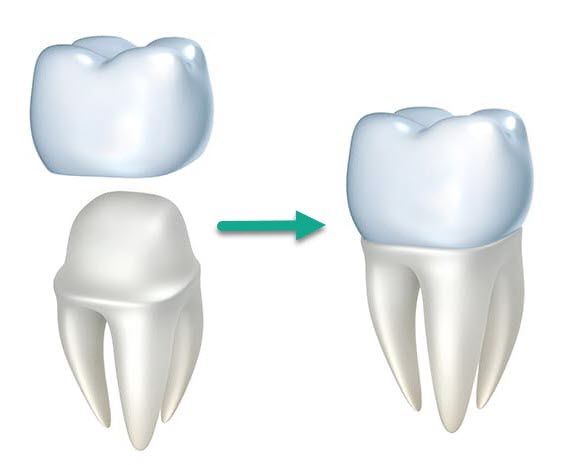When teeth become worn down from grinding, decay, or trauma, it’s natural to wonder what the best treatment option might be. For many patients, dental crowns (often called “caps”) are one of the most reliable ways to restore strength, function, and appearance. But are they the right choice for you?

This guide explains everything you need to know about dental crowns, including how they work, what they’re made of, their benefits and drawbacks, and what to expect during treatment.
A dental crown is a custom-made “cap” that completely covers a damaged or weakened tooth. It restores the tooth’s size, shape, and strength while also improving its appearance.
Dentists often recommend crowns when:
👉 Learn more from the MouthHealthy.org
Crowns can be crafted from different materials, each with its own advantages:
👉 Mayo Clinic also notes that your crown material depends on function, location, and budget
While crowns are highly effective, there are some considerations:
Crowns are usually placed in two appointments:
Some modern practices also offer same-day crowns using CAD/CAM technology.
Most patients report that the procedure itself is comfortable and pain-free thanks to local anesthesia. You may feel slight pressure or vibration during tooth preparation, but not pain.
After the procedure, you may notice:
These symptoms typically fade quickly. Over-the-counter pain relievers and avoiding hard foods help ease the adjustment period.
👉 The Cleveland Clinic notes that crown placement is routine and well tolerated by most patients.
The lifespan of a crown depends on the material, your bite, and your oral hygiene. On average:
Good oral care, avoiding hard chewing, and wearing a nightguard if you grind your teeth can extend crown life significantly.
Depending on your situation, alternatives may include:
Your dentist will help you decide which treatment makes the most sense for your needs and budget.
Q: Do crowns look natural?
Yes—modern crowns are designed to match the color, size, and shape of your surrounding teeth.
Q: Can crowns fix worn teeth from grinding?
Yes, but a nightguard is often recommended afterward to prevent damage to the new crowns.
Q: Do I need a root canal before a crown?
Not always. Root canals are only needed if the tooth’s pulp is infected or inflamed.
Q: How do I care for a crown?
Brush twice daily, floss once a day, and avoid chewing on hard objects like ice or pens. Regular dental checkups are essential.
Q: Can crowns fail?
While rare, crowns can crack or loosen. Prompt repair or replacement prevents further damage.
If your teeth are worn down and your dentist recommends crowns, it’s usually because they provide the best balance of strength, function, and long-term protection. While the investment is greater than a filling, crowns help prevent more serious dental issues down the line and restore your ability to smile and chew with confidence.
At Designing Smiles in Roseville, MN, Dr. Deborah Fung helps patients choose the crown material and treatment plan that best fits their lifestyle, health, and cosmetic goals.
